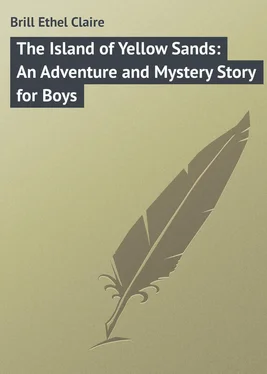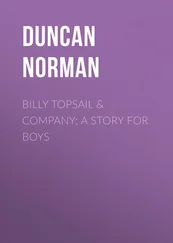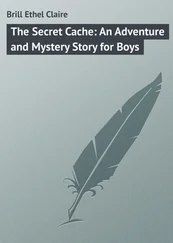Ethel Brill - The Island of Yellow Sands - An Adventure and Mystery Story for Boys
Здесь есть возможность читать онлайн «Ethel Brill - The Island of Yellow Sands - An Adventure and Mystery Story for Boys» — ознакомительный отрывок электронной книги совершенно бесплатно, а после прочтения отрывка купить полную версию. В некоторых случаях можно слушать аудио, скачать через торрент в формате fb2 и присутствует краткое содержание. Жанр: foreign_prose, Прочие приключения, foreign_language, на английском языке. Описание произведения, (предисловие) а так же отзывы посетителей доступны на портале библиотеки ЛибКат.
- Название:The Island of Yellow Sands: An Adventure and Mystery Story for Boys
- Автор:
- Жанр:
- Год:неизвестен
- ISBN:нет данных
- Рейтинг книги:4 / 5. Голосов: 1
-
Избранное:Добавить в избранное
- Отзывы:
-
Ваша оценка:
- 80
- 1
- 2
- 3
- 4
- 5
The Island of Yellow Sands: An Adventure and Mystery Story for Boys: краткое содержание, описание и аннотация
Предлагаем к чтению аннотацию, описание, краткое содержание или предисловие (зависит от того, что написал сам автор книги «The Island of Yellow Sands: An Adventure and Mystery Story for Boys»). Если вы не нашли необходимую информацию о книге — напишите в комментариях, мы постараемся отыскать её.
The Island of Yellow Sands: An Adventure and Mystery Story for Boys — читать онлайн ознакомительный отрывок
Ниже представлен текст книги, разбитый по страницам. Система сохранения места последней прочитанной страницы, позволяет с удобством читать онлайн бесплатно книгу «The Island of Yellow Sands: An Adventure and Mystery Story for Boys», без необходимости каждый раз заново искать на чём Вы остановились. Поставьте закладку, и сможете в любой момент перейти на страницу, на которой закончили чтение.
Интервал:
Закладка:
The knowledge that the evil Frenchman was so near made the lads uneasy. Remembering the look of bitter hatred the Blacksmith had given him, and Big Benoit’s warning to look to himself, Ronald felt, for the first time in his life, the chill dread that comes to one who is followed by a relentless enemy. He pulled himself together in a moment, however. If Le Forgeron was following them, it could not be merely to obtain vengeance for the blow the lad had given him. That cause seemed altogether too slight to account for desertion and the long trip back to Superior. It was probable that he had heard more of their plans that night at the Grande Portage than they had believed he could have heard, and was bent on securing the gold for himself.
While Ronald was pondering these things, Jean was telling Nangotook of their suspicions that Le Forgeron had overheard them, of his treatment of the squaw, of Ronald’s attack on him and of Big Benoit’s fortunate appearance. Nangotook listened silently, and nodded gravely when the boy had finished his tale, but the two could not read in his impassive face whether he shared their fears or not.
From a tree overhead a screech owl uttered its eerie cry, the long drawn closing tremolo on one note sounding like a threat of disaster. Perhaps the Indian took the sinister sound for a warning, for he rose from the log where he was sitting and went down to the water’s edge. When he returned, he said decisively, “Sleep now little while. Then go on in dark.”
The boys concluded he was as anxious as they to get away from the neighborhood of Le Forgeron.
Ronald could not sleep much that night, and when he did drop off for a few moments, the slightest sound was enough to arouse him. By midnight the water was still, and, at Nangotook’s command, the boys launched the canoe. The Indian in the bow, the three paddled noiselessly away from their camping ground, going slowly at first for fear of striking a bar or reef. Though they scanned the shore, they could see no sign of Le Forgeron’s camp-fire. Had he gone on ahead of them, they wondered.
All the rest of the night they traveled steadily, and did not make a landing until the sun had been up for more than an hour. Then they stopped long enough to boil the kettle and eat their breakfast of corn and pork.
The wind had come up with the sun, and before they had gone far from the little island where they had breakfasted, the gale threatened to dash the canoe on the shore, where breakers were rolling. The travelers were driven to seek refuge behind a sand-bar at the mouth of a small stream. Then the wind began to shift about from one point to another. Rain clouds appeared, and a succession of squalls and showers kept the impatient gold-seekers on shore until the following morning.
The sky was still cloudy and threatening, but the water was not dangerously rough, when they put out from the shelter of the sand-bar. A head wind made progress slow, as they went on up the shore and around the great cape which some early explorer had named Gargantua, because of a fancied resemblance to the giant whose adventures were told by Rabelais, a French writer of the first half of the sixteenth century.
A short distance east of the Cape, Nangotook directed the canoe towards a small rock island, one of a group. “Land there,” he said laconically.
“Why should we be landing on that barren rock?” questioned Ronald in surprise.
“Grave of great manito, Nanabozho,” the Indian answered seriously.
Ronald opened his mouth to speak again, but Jean punched him with his paddle as a warning to ask no further questions. Nangotook ran the canoe alongside a ledge of rock only slightly above the water. There he stepped out. The others followed and lifted the boat up on the ledge. Without waiting for them, Nangotook climbed swiftly over the rocks. Ronald would have followed him, but Jean took the Scotch boy by the arm.
“He goes to make an offering to the manito,” the French lad said, “and to ask him to send us fair weather and favorable winds for our voyage.”
“But Nangotook says he’s a Christian,” the other replied. “Why is he making sacrifices to heathen gods then?”
Jean shrugged his shoulders. “A savage does not so easily forget the gods of his people,” he said. “I have heard of this place before. Let us look around a bit while he is offering his sacrifices.”
The island proved to be a mere rock, barren of everything but moss, lichens, a few trailing evergreens, and here and there such scattering, stunted plants as will grow with almost no soil. Part of the rock looked as if it had been artificially cut off close to the water line, while the rest ran up steeply to a height of thirty or forty feet. At several spots the two lads found the remains of offerings made by passing Indians, strands of sun-dried or decaying tobacco, broken guns, rusty kettles and knives, bits of scarlet cloth, beads and trinkets. Evidently the savages reverenced the place deeply and believed that the spirit of the great manito made it his abode.
What interested the boys more than Indian offerings was several clearly defined veins of metal running through the rock. Here and there in the veins were holes indicating that some one, white man or Indian, had made an attempt to mine. Moss and stunted bushes growing in the holes proved that the prospecting must have been done a number of years before. Ronald, who knew a little of geology, said there was certainly copper in the rock, and he thought there might be lead, and perhaps silver, which, he explained, was sometimes found in conjunction with copper.
“The man I was telling you about,” Ronald concluded, “old Alexander Henry, who looked for the Island of Yellow Sands, but who went to the wrong place Etienne says, did some mining along this east and north shore. Perhaps he opened these veins, but if he did, it must have been twenty or thirty years ago.”
The three did not remain long on the island. Around Cape Gargantua the shore had become more abrupt and more broken, with sheer cliffs, deep chasms, ragged points and islands. The rocks were painted with a variety of tints, caused by the weathering of metallic substances and by lichens that ranged in color from gray-green to bright orange. It was slow work paddling in the rough water, but before night the travelers reached a good camping ground, among birch trees, above a steep, terraced beach in the shadow of the high cliffs of Cape Choyye.
Near their landing place the boys came upon a broad sheet of red sandstone sloping gradually into the water. The rock was scored with shallow, winding channels and peppered with smooth holes, some of them three or four feet deep. Many of the cavities were nearly round, but one was in the shape of a cloven hoof. When the Indian saw the place he looked awed and muttered, “Manito been here.” Jean, too, was much impressed, and hastened to make the sign of the cross over the cloven footprint, but Ronald laughed at him. The holes were perfectly natural, he said. He pointed out in many of them loose stones of a much harder rock, and suggested that, at some previous period when the lake level must have been much higher, the friction of such stones and boulders against the softer sandstone, as they were washed and churned about by the waves, might have ground out the cavities. The shallow channels were probably chiseled by the grating of sand and small pebbles. Nangotook paid no attention whatever to Ronald’s explanation, and even Jean did not seem entirely convinced. He shook his head doubtfully over the cloven hole.
VI
ALONG THE NORTH SHORE
Apparently the great Nanabozho looked upon the treasure-seekers with favor, for the next morning dawned bright, clear and with a favorable breeze. They started early to the tune of
Читать дальшеИнтервал:
Закладка:
Похожие книги на «The Island of Yellow Sands: An Adventure and Mystery Story for Boys»
Представляем Вашему вниманию похожие книги на «The Island of Yellow Sands: An Adventure and Mystery Story for Boys» списком для выбора. Мы отобрали схожую по названию и смыслу литературу в надежде предоставить читателям больше вариантов отыскать новые, интересные, ещё непрочитанные произведения.
Обсуждение, отзывы о книге «The Island of Yellow Sands: An Adventure and Mystery Story for Boys» и просто собственные мнения читателей. Оставьте ваши комментарии, напишите, что Вы думаете о произведении, его смысле или главных героях. Укажите что конкретно понравилось, а что нет, и почему Вы так считаете.












